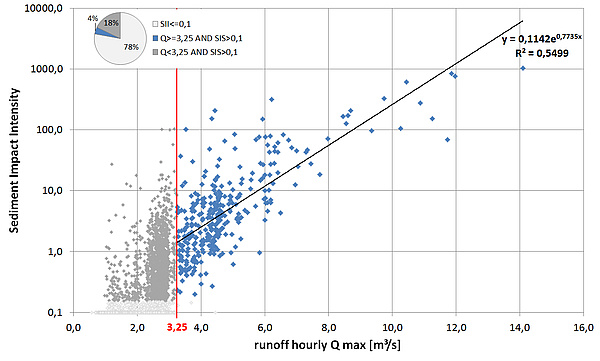Project start: 04/2012
Project duration: 3 years Cooperation partners:
- Institute of Geography and Regional Science, Karl-Franzens University Graz (KFU)
- Institute of Hydraulic Engineering and Water Resources Management, University of Technology Graz (TUG)
- Wegener Center for Climate and Global Change, Graz
Abstract
Sediment transport in river systems, being the output of geomorphic processes in the catchment, are a recurrent problem for geomorphological sediment budget studies, natural hazard assessment and river engineering. Each of these disciplines has its own tools and models of sediment yield acquisition, but for this complex subject is an interdisciplinary cooperation far more useful. In the project ClimCatch we therefore try to implement this approach. Our goal is, in a close collaboration between geomorphology (Institute of Geography and Regional Research, University of Graz) and river engineering (Institute of Hydraulic Engineering and Water Management, TUG) and other interested parties, to develop sediment management strategies for a catchment area (up to 100 km ²), in Styria.  © IWB - TU Graz
© IWB - TU Graz
Information about the project
Das Projekt wird den Sedimenthaushalt eines Flusses/Baches in einer integrativen Weise untersuchen. Die Methoden beinhalten:
- analysis of geomorphological mapping and airborne laser scanning (ALS) to generate a conceptual model of the prevailing sediment cascades
- quantification of important geomorphological processes using repeated terrestrial laser scanning (TLS) - surveys and other techniques, and the detection of the sediment storage volume
- quantification of sediment transport in the river system by using various methods of sediment sampling as well as passive methods and
- the development of possible measures and future sediment management strategies, especially from the perspective of accelerating climate change.
The work packages 1 and 2 are mainly processed (even if the work packages overlap) by geographers, no. 3 by river engineers. By contrast, the development of management strategies will be accomplished only on condition of close collaboration and the involvement of local experts.
Through our innovative interdisciplinary approach, we want to develop future strategies for river management, especially taking into account the various interests of local actors such as power plant operators, road maintenance services, etc. At the same time the project will also serve as a guide for dealing with similar problems in other regions.